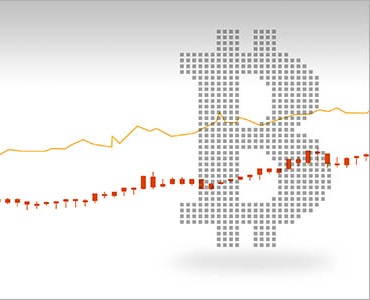A body of government regulators led by the Treasury secretary warned of risks posed by the proliferation of digital assets and urged Congress to pass legislation that addresses gaps in the financial system.
At a Financial Stability Oversight Council meeting October 3, Treasury Secretary Janet Yellen said in prepared remarks that digital assets “have grown significantly in scale and scope over recent years” and have “attracted a large amount of capital and interest from both retail and institutional investors.”
“At the same time, we have seen very significant shocks and volatility within the crypto-assets system, particularly over the last year,” she continued. These concerns should be remedied through closer enforcement of current rules, as well as the passage of legislation, the council recommended in a new report unanimously approved at the meeting.
“Some of these recommendations are focused on actions that Council member agencies can take with existing authorities,” Yellen said. “Others require Congress to provide new authorities.”
Composed of leaders from federal finance agencies including the Securities and Exchange Commission and the Commodity Futures Trading Commission, the FSOC’s 120-page report identified vulnerabilities within the crypto ecosystem and detailed the need for increased government oversight. The meeting was convened just weeks after a series of reports were submitted by Treasury and other agencies as part of the rollout of President Joe Biden’s digital asset framework.
“The Council’s report … finds that the current regulatory framework has helped largely insulate traditional financial institutions from crypto-asset-related financial stability risks,” Yellen said. “But it states that crypto-asset activities could pose risks to U.S. financial stability if their interconnections with the traditional financial system or their overall scale were to grow without adherence to or being paired with appropriate regulation, including enforcement of the existing regulatory structure.”
According to a fact sheet accompanying the report, parties that issue crypto assets or facilitate crypto trading, such as exchange platforms, are at least partly responsible for creating these risks. In the FSOC’s view, market participants purposefully avoid implementing guardrails for consumer protection and are prone to speculation-based trading, which make crypto prices volatile.
The report examined the existing regulatory regime and how crypto has fit within the current framework. Instances of fraud, market manipulation, and misrepresentations over how crypto firms are monitored present regulatory gaps, as the FSOC identified.
First, crypto assets that are not considered securities lack federal oversight, which can lead to exploitative practices and a lack of transparency. Next, businesses may not have clear regulatory arbitrage, as different affiliates or subsidiaries may operate under different rules inconsistent across the business as a whole. The report lastly raised concern with some trading platforms that have considered vertically integrating services provided by intermediaries to allow customers “direct access to markets,” which may expose customers to certain practices, like automated liquidation.
SEC Chair Gary Gensler said the industry is no longer as decentralized as previously advertised to early adopters. “Now, we see this industry populated by large, concentrated intermediaries, which often are an amalgam of services that typically are separated from each other in the rest of the securities markets,” he said. Gensler took the position that most crypto tokens should be considered securities, and that right now there’s widespread noncompliance with securities laws.
Michael Hsu, acting comptroller of the currency, said in a statement that particular consideration should be given to recommendations on arbitrage, interagency coordination, and transparency. “We know from the 2008 financial crisis what happens when regulatory agencies fail to coordinate effectively on risks that cut across jurisdictional lines: An unlevel playing field emerges and financial stability risks grow in the shadows,” he said.
Get all the latest tax, accounting, audit, and corporate finance news with Checkpoint Edge. Sign up for a free 7-day trial today.


